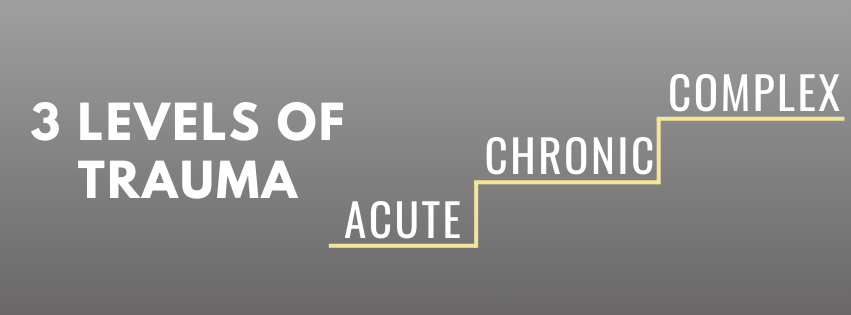Trauma Test | Understanding and Exploring Its Benefits
Trauma is a deeply personal and often misunderstood experience. For some, it’s tied to specific events, while for others, it stems from a series of subtle but impactful occurrences. Have you ever wondered if the challenges you're facing, whether emotional, psychological, or even physical, might be linked to unresolved trauma?
A trauma test is one way to begin unraveling this question. This simple yet powerful tool can help individuals reflect on their experiences and identify signs of trauma that might otherwise go unnoticed. Let’s explore what a trauma test is, its benefits, and how it can empower you to better understand your journey toward healing.
What Is a Trauma Test?
A trauma test is a self-assessment tool designed to help individuals evaluate whether they may be experiencing trauma or its effects. Unlike diagnostic tools used by clinicians, trauma tests are often informal and meant for personal reflection. They typically involve questions that prompt you to consider your emotional state, behaviors, and responses to certain situations.
Purpose of a Trauma Test
Self-awareness: Trauma tests provide insights into how past events may be influencing your current emotions and behaviors.
Validation: They can affirm experiences that you may have dismissed or minimized over time.
Direction: While not a substitute for professional diagnosis, trauma tests can serve as a stepping stone toward seeking help.
Common Misconceptions About Trauma Tests
They are diagnostic tools: Trauma tests cannot replace the expertise of a trained therapist.
They are one-size-fits-all: Trauma is highly individual, and these tests are best viewed as starting points.
They provide all the answers: Trauma tests open doors to understanding but don’t offer definitive solutions.
The Benefits of Taking a Trauma Test
Understanding trauma and its effects is the first step toward healing.
Here are some of the key benefits of using a trauma test:
1. Increased Self-Awareness
Many people live with unresolved trauma without realizing its impact on their lives. A trauma test can shine a light on patterns of behavior or emotional responses that may be rooted in past experiences.
2. A Sense of Validation
It’s common to question whether your experiences “count” as trauma. Trauma tests provide a framework to acknowledge those feelings and experiences without judgment.
3. Encourages Seeking Support
For those hesitant to reach out for professional help, trauma tests can serve as a gentle nudge. By identifying potential signs of trauma, these tests help bridge the gap between self-awareness and seeking therapy.
4. Promotes Self-Compassion
Recognizing trauma can foster a deeper understanding of yourself. It allows you to approach your emotions with kindness, knowing they stem from real and valid experiences.
Different Levels of Trauma - What You Need to Know
Trauma doesn’t fit neatly into a single category, it exists on a spectrum. Understanding the different levels of trauma can provide clarity as you explore your experiences.
1. Acute Trauma
Results from a single, distressing event.
Examples: Car accidents, assaults, natural disasters.
Symptoms: Shock, denial, mood swings.
2. Chronic Trauma
Stemming from prolonged exposure to distressing situations.
Examples: Abuse, neglect, ongoing bullying.
Symptoms: Anxiety, hypervigilance, difficulty trusting others.
3. Complex Trauma
Arises from repeated and cumulative harm, often in interpersonal relationships.
Examples: Long-term domestic violence, childhood trauma.
Symptoms: Feelings of worthlessness, difficulty regulating emotions.
A trauma test can help identify where your experiences align, providing a starting point for further exploration.
How Trauma Affects the Mind and Body
Trauma doesn’t just reside in the mind, it also manifests physically. Understanding these effects can provide deeper insights into the importance of addressing trauma.
1. Physical Symptoms
Tension headaches, fatigue, and digestive issues are common.
Chronic stress from unresolved trauma can weaken the immune system.
2. Emotional Symptoms
Feelings of guilt, shame, or fear often accompany trauma.
Emotional outbursts or numbness may occur as coping mechanisms.
3. Behavioral Symptoms
Avoidance of certain places or people.
Increased reliance on substances or unhealthy habits.
A trauma test can highlight patterns that may indicate the mind-body connection at play.
A Fresh Perspective on Trauma Tests
The growing awareness of mental health has made tools like trauma tests more accessible than ever.
Here are some evolving aspects:
1. Digital Tools
Online trauma tests are now widely available, offering convenience and privacy. However, it’s important to use reputable sources to ensure accuracy.
2. Increased Accessibility
As stigma surrounding trauma decreases, more people are exploring self-assessment tools as a way to better understand themselves.
3. A Stepping Stone, Not a Destination
Trauma tests are most effective when used as a gateway to deeper exploration—whether through self-help resources or therapy.
Understanding trauma is a journey, and a trauma test can be a meaningful first step. By shining a light on your experiences, these tests offer validation and direction, empowering you to take control of your mental health. Remember, acknowledging trauma is not a sign of weakness, it’s a testament to your strength and resilience.
Taking the time to reflect on your experiences through tools like trauma tests is a courageous act. Wherever you are in your journey, know that help and healing are within reach.
Author
MEET THE SBCS TEAM
At Space Between Counseling Services (SBCS), we're a team of diverse therapists passionate about enriching your mental health through insightful articles. Licensed across MD, NM, DE, DC (District of Columbia), and FL, we blend expertise in anxiety, depression, trauma, and more, striving for inclusivity in every piece we write.
Our collective voice aims to guide, educate, and support you through modern life's complexities.






